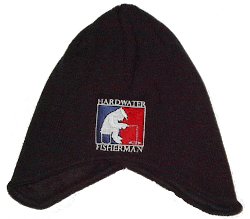Does anyone have a good website the gives the current barometer information? Never tried using the information for fishing before and would like to get readouts of times to fish.
Here is somthing that was posted awhile it was intresting so I saved it.
Effects of Barometric Pressure on Fishing
By Lee Adams
It has been known for a long time that the barometric pressure has an effect on fishing. How the pressure directly effects the fish is still not fully understood, but knowing how to use the barometric pressure readings can greatly increase your chances of catching fish, especially in shallow and fresh waters.
Barometric pressure is the measure of the weight of the atmosphere above us. It exerts pressure on the waters we fish and even on us. In fact, it can change how well some people feel. It is believed by many, that it may have a similar and even more dramatic effect on fish effecting their feeding habits.
Measurement of barometric pressure is accomplished with the use of a barometer. A barometer measures the weight of the atmosphere per square inch (pressure) and compares it to the weight of a column of mercury.
The first instrument was invented in 1643 by Evangelista Torricelli. His barometer used a glass tube from which all air has been removed (a vacuum) and is inserted into a container of mercury that is exposed to the pressure of the air. The air pressing down on the mercury in the container forces an amount of the mercury up into the glass tube. The height to which the mercury rises is directly proportional to the pressure of the atmosphere. This is usually measured in inches (inHg) or in millibars (1 inHg equals 33.864 millibars).
Today aneroid barometers, invented by the French scientist Lucien Vidie in 1843, are the most widely used instrument to detect air pressure. An aneroid is a flexible metal bellow that has been sealed after removing some of it's air (a partial vacuum). A higher atmospheric pressures will squeeze the metal bellow while a lower pressure will allow it to expand. This expansion of the metal is usually mechanically coupled to a dial needle which will point to a scale indicating the barometric pressure.
A new form of barometer uses a pressure transducer. This transducer is like a miniature aneroid barometer that converts the amount of air pressure into a proportional electrical voltage. This voltage then can be fed into a digital readout and/or into a computer.
Barometric pressure varies with altitude. A higher elevation will have less atmosphere above it which exerts less pressure. To keep readings standard across the world, barometric pressure is to be indicated at sea level. Therefore, readings at elevations other than at sea level will require a correction factor which is based on the elevation and the air temperature (colder air weighs more and will require a greater correction).
The barometric pressure changes as the weather systems over us changes. When you look at a weather map that has those blue "H"s and red "L"s, this is indicating the areas with High and Low pressure. It is worth noting that the areas with high pressure are the areas with good weather, and the areas with low pressure are the areas with bad weather. Barometric pressure has been used by weathermen since the beginning of meteorology to predict the weather. It can also be used by fishermen to predict the quality of fishing, and more importantly, how to fish.
As a general guideline, think of 30 inHg (1016 millibar) as being a normal level. World records vary from a high pressure of 32.0 inHg in Siberia to 25.7 inHg during a typhoon (both readings are off the scale of most barometers). For the US, extreme levels can be considered as 30.5 inHg and 28.5 inHg. When it comes to fishing, a change of just +/- 0.02 inHg from normal is enough to effect their feeding habits.
It is important, however, to note that the effects of barometric pressure is greater in fresh and shallow waters, than it is in deeper waters. This is probably due to the fact that the pressure of water is so much greater in deeper waters making the air pressure above it no longer having any significance.
Some general rules regarding barometric pressure are:
Pressure Trend
Typical Weather
Fishing Trends
Suggested Tactics
High
Clear skies
Fish slow down, find cover or go to deeper waters.
Slow down lures and use baits more attractive to fish. Fish in cover and in deeper waters.
Rising
Clearing or improving
Fish tend to become slightly more active
Fish with brighter lures and near cover. Also fish at intermediate and deeper depths.
Normal and stable
Fair
Normal fishing
Experiment with your favorite baits and lures.
Falling
Degrading
Most active fishing
Speed up lures. Surface and shallow running lures may work well.
Slightly lower
Usually cloudy
Many fish will head away from cover and seek shallower waters. Some fish will become more aggressive.
Use shallow running lures at a moderate speed.
Low
Rainy and stormy
Fish will tend to become less active the longer this period remains.
As the action subsides, try fishing at deeper depths.
It is important to note that after a long feeding period, the action will slow regardless of the following conditions. On the flip side, a long period of poor fishing conditions may be followed by a really good one.
It is also important to note, that the barometric pressure is just one of many factors that effect fish feeding habits. Other effects include water temperature, light, tidal forces, water clarity, the pH level, water levels, wind/surface disturbance, boat traffic, fishing pressure, and so on. Another good judging factor of fishing is the solunar effects which play a role in the tidal and illumination factors.







